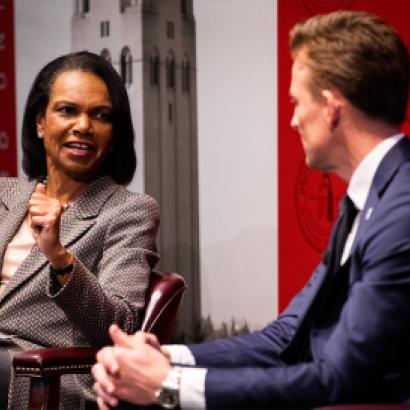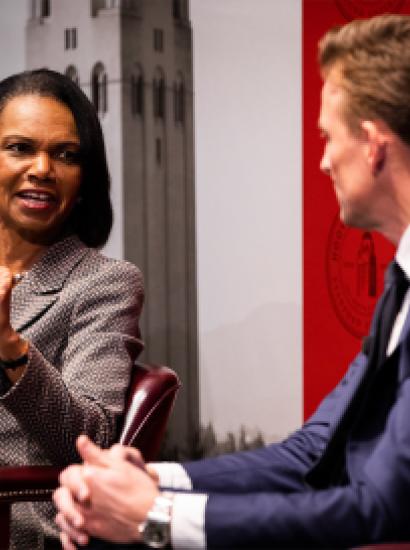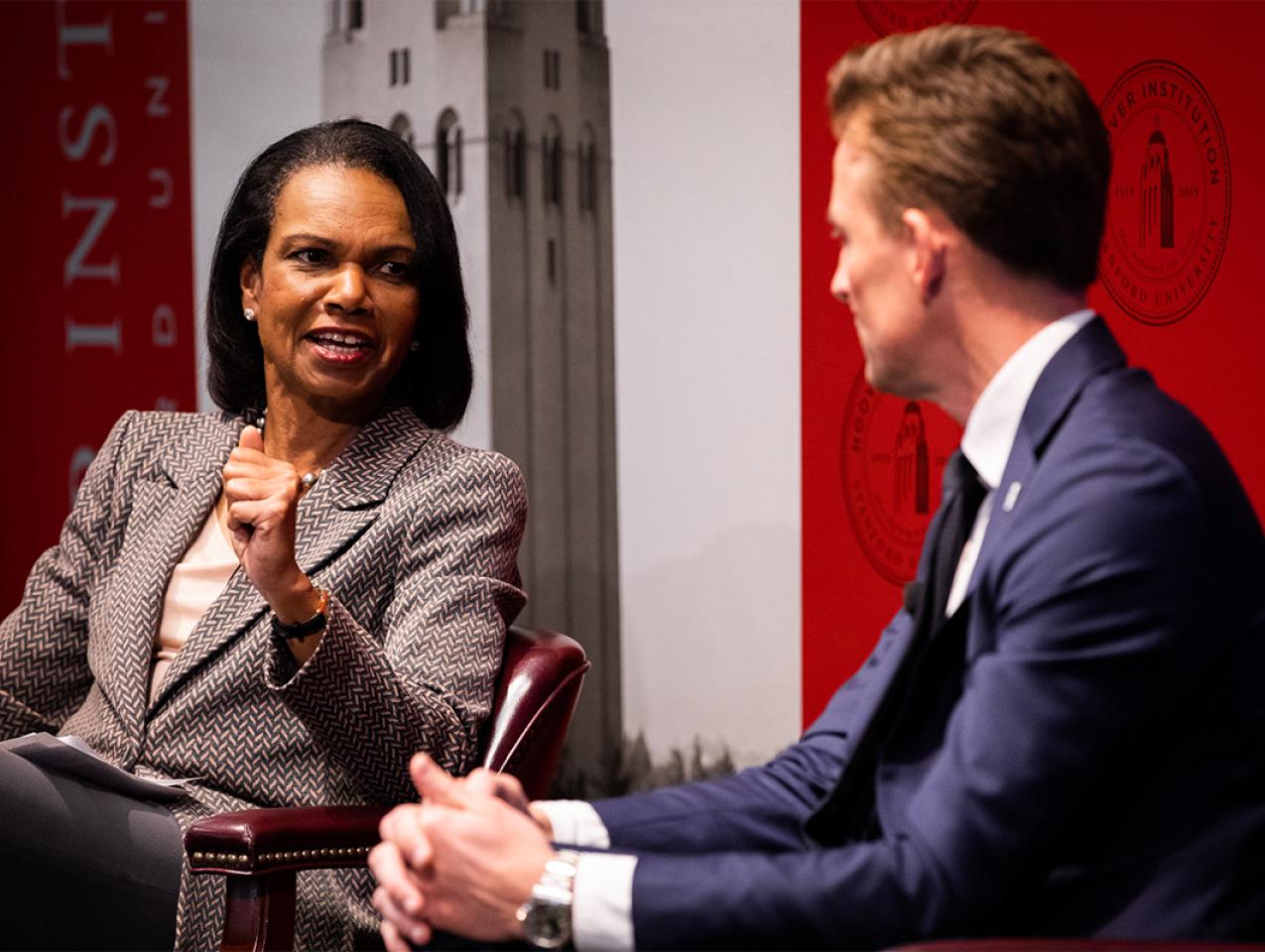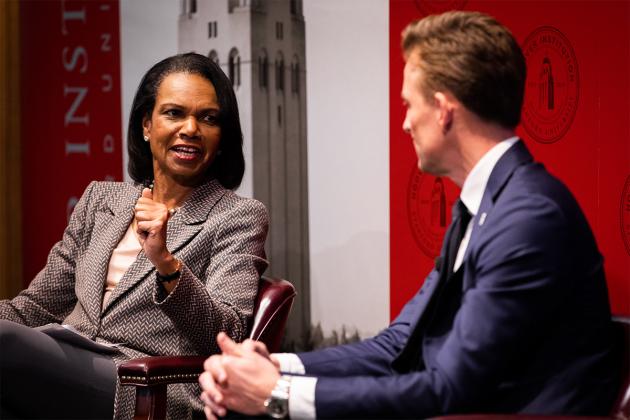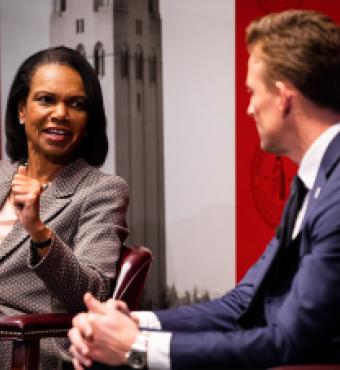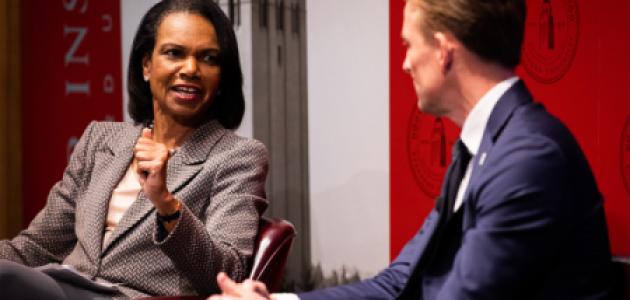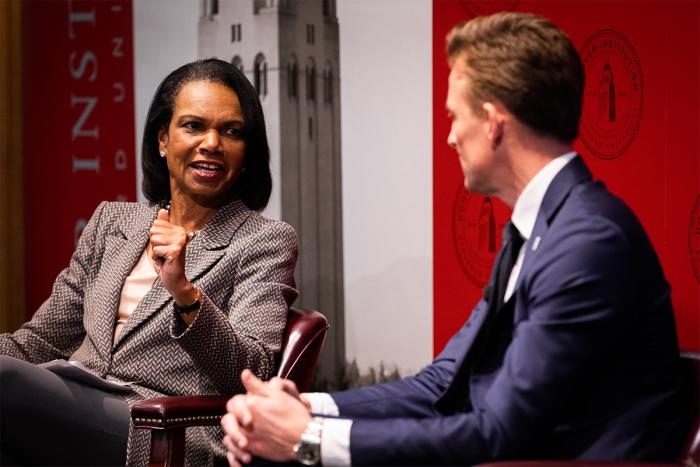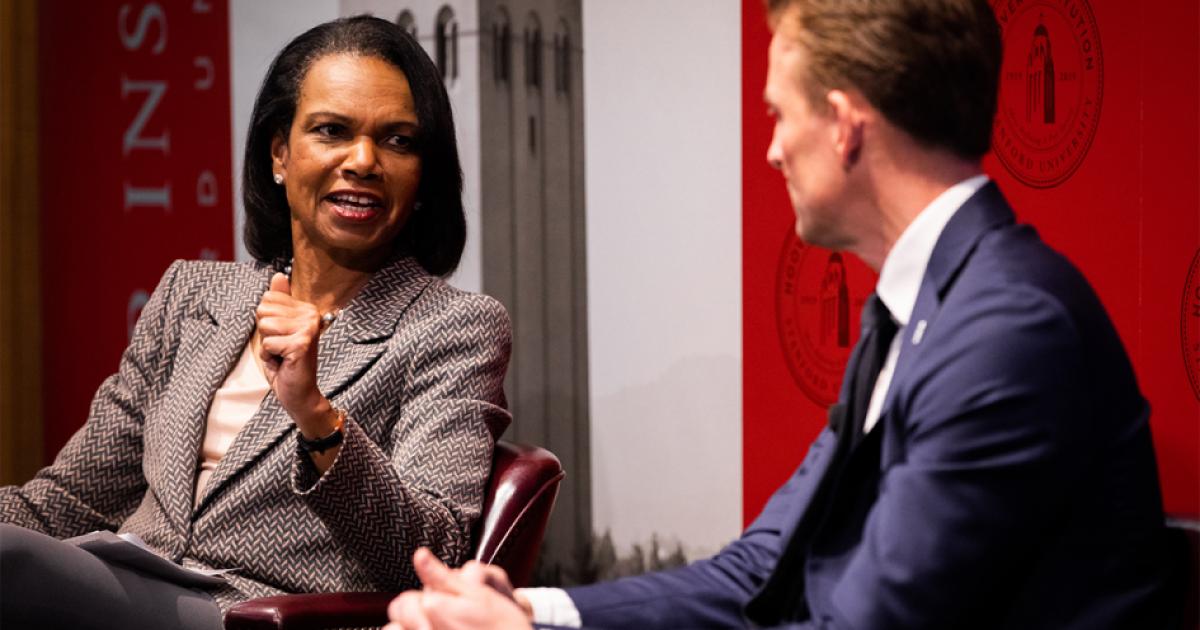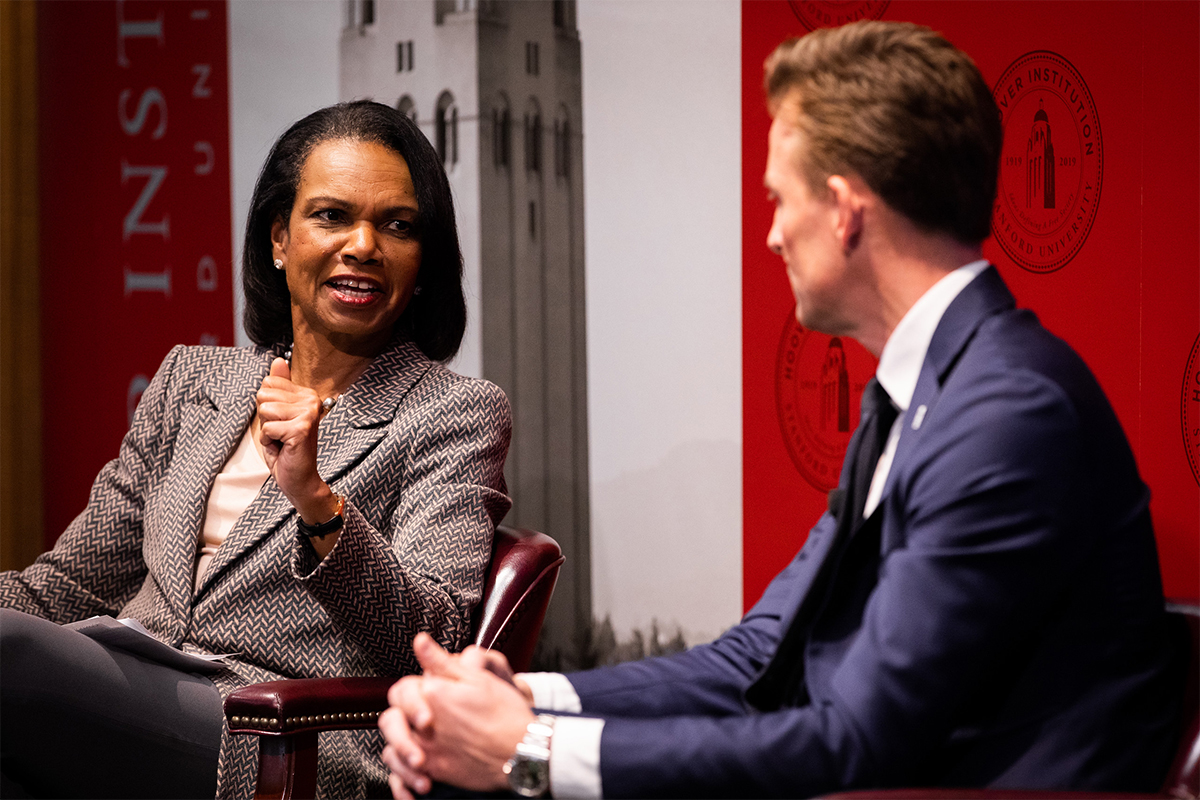
Hoover Institution (Stanford, CA) – Thomas and Barbara Stephenson Senior Fellow Condoleezza Rice led a conversation about how the United States can best leverage foreign aid to assist partners and allies in hedging the global ambitions of the People’s Republic of China, as well as to empower fledgling countries to establish thriving economies and governing practices responsive to the needs of their peoples.
The former US secretary of state was joined in the Hoover Institution’s Stauffer Auditorium by Sean Cairncross, CEO of the Millennium Challenge Corporation (MCC), a US foreign assistance agency whose mission is to reduce poverty among partner countries while advancing American interests.
Created by an act of Congress in 2004, the MCC issues grants ranging from $65 million to $700 million for what it calls “compacts,” development and infrastructure projects in poor and middle-income countries across the world.
According to Cairncross, these projects are required to be led by the host country, and completed on budget within five years of breaking ground. Before the MCC approves funding, the host government must undergo a rigorous audit that demonstrates its commitment to good governance, open-market reforms, and responsibility to its citizens. Criteria include indicators such as equal opportunity for women and equitable access to land, as well as “hard hurdles” of controlling corruption and guaranteeing democratic rights and civil liberties.
Furthermore, the MCC requires that two years prior to the project being “shovel ready,” host countries must attain cooperation from representative segments of its civil society.
Cairncross highlighted the MCC’s recent work with the government of El Salvador on a water treatment facility as a success story. He said the administration of President Nayib Bukele effectively engaged its civil society and influenced citizens who had largely been skeptical of such projects to become “true believers” in what their government wanted to accomplish. He said that this success has motivated citizens to deploy private investments across its economy, including the tourism sector.
“I don’t know of a better use for US foreign assistance than to create that sort of relationship between a partner-country government and its own people,” said Cairncross.
Cairncross maintains that durable institutional change and responsiveness to citizens mitigates risk and creates a credible environment for future investment from the private sector. Hence, capital is likely to flow into a country that has less corruption and respects the rule of law and sanctity of contracts.
For a country that has not attained the requirements for a compact, it may be admitted to a threshold program and receive smaller amounts of money for critical infrastructure. These grants create significant incentives for institutional change in countries that hope to make the United States a future partner in their economies.
Rice asked Cairncross if the MCC’s efforts are running up against China’s infrastructure projects covered under its ambitious “One Belt, One Road” initiative. He responded that the key difference is that China doesn’t properly recognize its host countries’ needs, nor does it respect their sovereignty.
In Africa, One Belt, One Road projects only employ Chinese workers and do little to build local markets or engage civil society, Cairncross said. Very often, China invests in expensive projects of questionable benefit, such as underutilized bridges or low-attended, high-capacity stadiums, which will only drive the host country further into debt.
Cairncross explained that Kenya is an example of a country overrun by debt from China. It has dire infrastructure needs and now wants to make the United States its partner of choice through a compact with MCC.
“The Chinese had an early run,” Cairncross said. “Now the bill is coming due.”
View the event page, or watch the video below.







